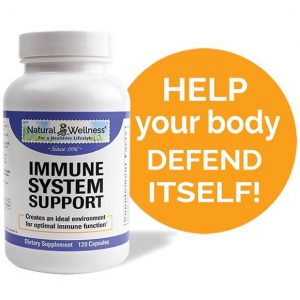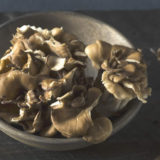

It’s that time of the year again. Yes, cold and flu season.
Before stocking up on medications at the pharmacy, take a peek at the announcement the Food and Drug Administration (FDA) just made about fluoroquinolone, an entire class of antibiotics that were found to increase the risk of very serious damage to your aorta, the main artery in your body running down the back of the spine (1).
The fluoroquinolones, according to the National Library of Medicine, are a broad class of antibacterial agents that have been widely used for 30 years to treat respiratory and urinary tract infections such as meningitis, gonorrhoeae, influenza, and even anthrax poisoning (2).
But their therapeutic properties may be overshadowed by some serious health risks.
The FDA’s review and subsequent announcement on December 20th, 2018 found that fluoroquinolones lead to increased risk of tears and ruptures to your aorta, which can lead to fatal internal bleeding. Scott Gottlieb, FDA Commissioner, also made a statement saying, “Although the risk of aortic aneurysm or dissection is low, we’ve observed that patients are twice as likely to experience an aortic aneurysm or dissection when prescribed a fluoroquinolone drug.”
Who’s at Risk?
The most at risk are the elderly, but increased risk is also associated with high blood pressure or any history of aortic blockages or abnormalities. If you have taken, or are currently taking any of the medications below, you should consult your physician immediately about their continued use.
These are commonly prescribed antibiotics that all contain fluoroquinolones:
- Ciprofloxacin
- Delafloxacin
- Gemifloxacin
- Levofloxacin
- Moxifloxacin
- Norfloxacin
- Ofloxacin
Preventing the Need for Antibiotics
Now we know. And knowing what not to do is often just as important as knowing what to do.
But let’s take a step back: keeping yourself healthy throughout the cold season is the best way to prevent the need for antibiotics in the first place.
Diet and lifestyle are the best places to start. From better hygiene practices or something as benign as taking a daily vitamin or supplement, tiny changes can go a very long way.
Starting Small
Wash your hands. Seriously. Go do it. The Centers for Disease Control and Prevention (CDC) tells us that “keeping hands clean is one of the most important steps we can take to avoid getting sick and spreading germs to others.” And, believe it or not, a lot of people aren’t doing it right.

It may seem overly explanatory, but the importance of washing your hands properly cannot be understated. The Mayo Clinic suggests the following steps:
Use hot or cold water; apply liquid, bar or powdered soap to a cupped hand; and lather well (4).
Often neglected are the tops of your hands and between your fingers.
If you’re wondering how long to wash for, the CDC recommends a solid 20 seconds, or approximately the amount of time it takes you to hum The Happy Birthday Song.
When you’re done, rinse and dry your hands thoroughly with a clean towel or cloth and be sure to use the towel to turn off the sink. It would be a shame if the same bacteria and germs you just cleaned off got right back on your hands.
A Multi-Vitamin Per Day…
Working a multivitamin or supplement into your daily routine is a small but effective change to ensure you’re getting all of the nutrients you need during the cold/flu season and beyond. Multivitamins also check a lot of boxes at the same time. In fact, Natural Wellness’s Clinical Multi-Vitamin contains echinacea, zinc, vitamin A, vitamin C and whole slew of B vitamins.
And don’t forget about the D vitamins. Vitamin D2 and D3 are essential for normal cell growth and function as well as helping maintain adequate blood calcium levels and cardiovascular and neuromuscular/neurological function.
Making sure your immune system is supported is crucial during cold and flu season, especially as stressors tend to mount around this time of year, whether it’s anxiety around spending time with family or the financial strain and emotional strain of gift-giving. Taking an immune-boosting supplement like Natural Wellness’s Immune System Support is an easy and cost effective way to help your body increases its resistance to allergies, viruses, and bacterial infections.
5 Foods and Spices to Keep You Healthy
Keep in mind that multi-vitamins and any supplement are baby steps to making more substantial changes to your diet and lifestyle behaviors.
Food wise, the best 5 ingredients to keep cold and flu season at bay are below:

- Garlic – It’s not only super tasty and amazing for bad breath, but garlic is also a powerful immune booster. It aids white cell production and increases the efficiency of antibody production.
- Spicy Foods – In addition to speeding up your metabolism and being anti-inflammatory, a 2015 study conducted by Harvard and China Center For Disease Control found that habitual spicy food consumption lowered mortality rates by 14%, and “was inversely associated with total and certain cause specific mortality, independent of other risk factors of death.” Basically, daily spice helps you live longer. But don’t just start adding a ton of heat to everything. It could upset your stomach if you’re not used to it. Start small and go slow.
- Avocados – Avocados are a great source of vitamins C, E, K, riboflavin, niacin, folate, pantothenic acid, magnesium, potassium, and are also chock-full of omega-3 fatty acids. They’re not only delicious, but their nutritional properties will help improve cardiovascular health, vision, osteoporosis, and the fat they contain is great for your skin.
- Ginger – A time-honored remedy for coughs, colds and sore throats, ginger has some distinct medicinal properties. It increases sweat-gland production to filter toxins out of the body, contains anti-inflammatory properties, and kill rhinoviruses, the precursor to the common cold.
- Fish – Like avocados, fish are very rich in omega-3 fatty acids. Cooked or raw, fish are anti-inflammatory, and a 2011 study published by Brain, Behavior and Immunity, found that omega-3 supplementation lowers inflammation and anxiety (7).
Exercise
The other half of the equation alongside diet is exercise. It should be no shock to anyone that exercise boosts metabolism and your chances of warding off infection.
If you’re older and physical activity is an issue, you don’t have to do a high intensity workout to see tangible improvements to your health.
Light to moderate exercise can boost your white blood cell count, and a short 20-30 minute walk per day has been shown to reduce hypertension and high blood pressure (6). According to Harvard Medical School the “cardiovascular benefits of walking are biologically plausible; like other forms of regular moderate exercise, walking improves cardiac risk factors such as cholesterol, blood pressure, diabetes, obesity, vascular stiffness and inflammation, and mental stress.”
Conclusion: Stay Healthy
If you’re currently taking or have taken any of the antibiotics containing fluoroquinolones, consult with your physician about whether or not to continue use.
Avoiding the cold and flu season and the need for antibiotics should always be your goal.
Taking steps to ensure your healthy is something that can be practiced all year round, such as washing your hands properly, taking a multivitamin, eating five certain foods and spices, and exercising.
It’s in turning these suggestions into a practice that eventually makes healthiness a constant state of being. And, remember, starting small is still starting.





